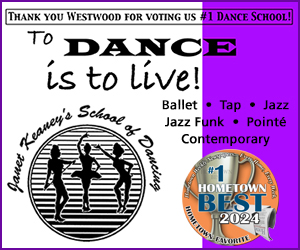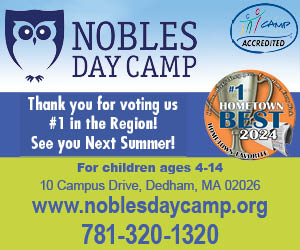By James Kinneen
Hometown Weekly Reporter
On Tuesday night, the Walpole School Committee held a virtual forum where Walpole residents, town employees and students made their case why Walpole High School should keep or abandon the Rebel name. Shown on Walpole Media cable access and live-streamed on their Rebel TV YouTube channel, 74 residents signed up to give a three-minute talk about whether or not it’s time to “retire the Rebel.”
While less than 74 people ended up speaking, there were far too many arguments and opinions to catalog them all. However, a number of points came up again and again, with various speakers either bolstering or dismissing them.
Can we disassociate/Have we already dissociated the name “Rebels” with the Confederacy?
Among those looking to keep the name, nobody claimed the Confederacy had a just cause or that the Confederate flag was not associated with slavery. Instead, their main argument was that past actions - like banning Confederate flags and the playing of “Dixie” at Walpole football games - made it so that nobody associates being a Walpole Rebel with being a Confederate anymore.
44-year Walpole resident Janet Fasanello attempted to connect being a rebel with the Revolutionary War, arguing America was “a country founded and built by rebels. The untested army of the American rebels was able to defeat a British superpower during the American Revolution. These rebels were innovators of a unique form of democracy called the United States of America. The unfortunate linking of the name to some of our negative history will never negate the proud name of the American rebels.”
Courtney Landi Cunniff, who is not originally from Walpole, said she didn’t associate the Rebel name with the Confederacy when she first heard it. She also mentioned the American Revolution, deeming it “good time to be a rebel.”
Other people who favored keeping the name spoke of the idea that kids don’t think of being a Walpole Rebel as having anything to do with the Confederacy in 2020. Rising Walpole High senior Ethan McDonagh talked about the Walpole community having been able to “create a new culture surrounding our beloved Rebel mascot” and declared that “everyone in our community, to me, is a Rebel.”
Michelle Fahey said that the name “Rebels” makes young kids think of “Walpole pride, camaraderie and winning games” while Will Domino said “no matter what the past negative connotations are, the current meaning of being a Walpole Rebel is being a family, and having respect for one another.”
The idea that the connection between the Rebel name and the Confederacy was a thing of the past, however, was challenged by speaker after speaker. Megan Schwartz noted that she still sees Confederate flags on student’s cell phone cases, while another teacher pointed out that he’s had students fly the flag in the back of pickup trucks once off school property, and that some students have gone so far as to get Confederate flag tattoos. In one of the night’s lighter moments, Brian Gaffey talked about a 2007 robotics championship competition in Atlanta, where his team was greeted by a group of Georgia locals who saw their team shirts, thanked them for “fighting the good fight up North,” and assured them that “The South will rise again.” Other speakers noted that of the 162 American high schools that use the “Rebel” as their mascot, 77 percent have used or continue to use Confederate iconography.
But perhaps the most compelling argument was the simplest. Katia Santiago Taylor quipped: “if Walpole Public Schools were so successful at re-branding, they wouldn’t have to keep reminding students and parents that the Confederate flag is not welcome.”
What Ramifications has the Rebel name had on outsiders’ perception of Walpole? Does it matter?
A number of speakers talked about not understanding the impact of the Rebel name until they left the “Walpole bubble.” Christina Freiberger realized how many people associate Walpole with racism because of the Rebel name when she went to BC and met people from other Massachusetts towns who knew only one thing about Walpole: its association with Confederate flags. Ditto for Meredith Lorusso, who went to Stonehill and heard nothing but “isn’t that the town with the Confederate flags?”, "is your town racist?", and "are you racist?" when she mentioned Walpole. Eric Fleming, a 2008 Walpole graduate, began lying about being from Walpole after hearing so much talk about the town’s racism among his Harvard brethren.
Does this outside perception matter? According to Courtney Landie Cunniff, no, it does not. She spoke strongly about not letting others’ beliefs about what the Rebel name means dictate the decision whether to change it or not.
“It is incredibly unrealistic to assume we can continually and consistently control the perceptions of others, whatever our town name,” she explained. “All that we would accomplish by changing who we are is a demonstration of fragility and weakness. It may feel easier or simpler to bend to the whims and misinformed perceptions of others than it is to face them head on and stand up for what it really means to be a Walpole Rebel. Taking the easy way out is not one of the values we should be instilling in our students and student athletes. Avoiding conflict is not at all what it means to be a Walpole Rebel.”
Whether you care what other people think about Walpole or not, many speakers noted the tangible benefits from a name change would be significant for the town. One teacher read from a letter signed by sixty Walpole school employees, which talked about how many of them saw the job opening, Googled “Walpole,” and seriously hesitated about applying to the position because of the Rebel and Confederate flag images that popped up. If white teachers were uneasy about teaching Walpole because of the name, they argued, how many black teachers, coaches and guidance counselors have opted not to apply to these jobs over the years? How many great teachers and talented coaches has the Rebel name cost Walpole? How many black doctors, lawyers and craftsmen opted to live in another Boston suburb because of the Rebel name? Wouldn’t Walpole be better off with these people?
Most damning was hearing that in college, a couple of ex-Walpole athletes heard how other teams' former players (especially people of color) felt unsafe having their families in the stands at Walpole games, had some of their players opt not to go when their team played the Rebels in Walpole, and generally felt unsafe going to play in the town.
With so much “Rebel pride” based on athletic success, what must it have been like to hear that those teams you were so proud to have beaten were too worried about potential racially-motivated violence to focus fully on the games? That kids didn’t want their families going to Walpole and cheering for them in the stands? That sometimes, their best players didn’t even show up? Did the Rebels really beat the best version of those teams, when the threat of racial violence was Walpole’s “12th Man”? Are those wins not at least a little bit tainted?
Is it too expensive? Is now the right time? Should there be a town-wide vote instead?
Various other issues arose regarding the timing and logistics of how a change could or should happen. Michelle Fahey wanted a town referendum so that everyone could vote, rather than leave it in the hands of the school board. Ironically, some of the people on the other side of the issue called out the board’s lack of diversity in who will decide such a racially charged issue.
The cost of changing the name and updating the school was brought up by Susan Naughton in response to comments she’s seen on social media. She argued that if necessary, the school could do it bit by bit, keeping the school colors and removing things that said “Rebels” piece by piece, rather than having to remove and (expensively) replace everything at once. She also floated the idea of a GoFundMe page to help with the expenses. Others argued you can’t put a price on the safety and well-being of students, so cost should be considered a complete non-issue.
Will changing the Rebel name tear the town apart or unite it?
Ethan McDonough claimed the push to retire the Rebel “is ripping away our sense of town unity” and deemed it “counterproductive,” while Tucker Hazel said changing the name would “ruin the culture of the school.” While “cancel culture” may have led many of those with “Rebel Pride” lawn signs to opt to remain silent rather than express themselves in a public forum (the Zoom technology may have been an issue, as well, considering how young the speakers tended to be), at the virtual forum at least, these thoughts were very much in the minority.
Most speakers said the pride of Walpole has always been the people, and that getting rid of the Rebel name and its racist connotations would make it much more of an inclusive community for people of color. They said that kids of color would feel safer at school, which would improve their performance academically, as well as in extracurricular activities and sports, which would boost the town's profile. They argued the most important thing is not whether the name bothers you, but whether those whose ancestors were enslaved, murdered and oppressed by the Confederacy find it offensive.
Either way, 620,000 Americans died in the Civil War, and the United States of America was able to reunite and come together as one country again. Surely, the people of Walpole can handle a vote on the high school mascot not going their way.























